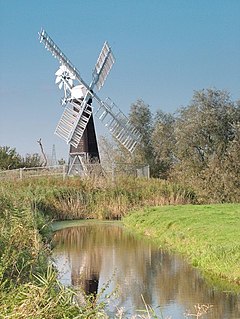
English trust law concerns the protection of assets, usually when they are held by one party for another's benefit. Trusts were a creation of the English law of property and obligations, and share a subsequent history with countries across the Commonwealth and the United States. Trusts developed when claimants in property disputes were dissatisfied with the common law courts and petitioned the King for a just and equitable result. On the King's behalf, the Lord Chancellor developed a parallel justice system in the Court of Chancery, commonly referred as equity. Historically, trusts have mostly been used where people have left money in a will, or created family settlements, charities, or some types of business venture. After the Judicature Act 1873, England's courts of equity and common law were merged, and equitable principles took precedence. Today, trusts play an important role in financial investment, especially in unit trusts and in pension trusts. Although people are generally free to set the terms of trusts in any way they like, there is growing legislation to protect beneficiaries or regulate the trust relationship, including the Trustee Act 1925, Trustee Investments Act 1961, Recognition of Trusts Act 1987, Financial Services and Markets Act 2000, Trustee Act 2000, Pensions Act 1995, Pensions Act 2004 and Charities Act 2011.

Paul v Constance[1976] EWCA Civ 2 / [1977] 1 W.L.R. 527 is an English trust law case. It sets out what will be sufficient to establish that someone has intended to create a trust, the first of the "three certainties". It is necessary that a settlor's "words and actions ... show a clear intention to dispose of property ... so that someone else acquires a beneficial interest."

The Law of Property Act 1989 is a United Kingdom Act of Parliament, which laid down a number of significant revisions to English property law.

Re Rose[1952] EWCA Civ 4 is a case in English trusts law and English property law. It established that if a donor has done everything that can be expected of him to transfer legal title, but the transfer is delayed by the routine operation of the law then the gift is still effective. This is sometimes called the "Re Rose principle", or the "every effort rule".

City of London Building Society v Flegg[1987] UKHL 6 is an English land law case decided in the House of Lords on the relationship between potential overriding interests and the concept of overreaching.

Proprietary estoppel is a legal claim, especially connected to English land law, which may arise in relation to rights to use the property of the owner, and may even be effective in connection with disputed transfers of ownership. Proprietary estoppel transfers rights if,

Hussey v Palmer [1972] EWCA Civ 1 is an English trusts law case of the Court of Appeal. It concerned the equitable remedy of constructive trusts. It invokes the equitable maxim, "equity regards the substance and not the form."

Re Vandervell Trustees Ltd [1974] EWCA Civ 7 is a leading English trusts law case, concerning resulting trusts.
Constructive trusts in English law are a form of trust created by the English law courts primarily where the defendant has dealt with property in an "unconscionable manner"—but also in other circumstances. The property is held in "constructive trust" for the harmed party, obliging the defendant to look after it. The main factors that lead to a constructive trust are unconscionable dealings with property, profits from unlawful acts, and unauthorised profits by a fiduciary. Where the owner of a property deals with it in a way that denies or impedes the rights of some other person over that property, the courts may order that owner to hold it in constructive trust. Where someone profits from unlawful acts, such as murder, fraud, or bribery, these profits may also be held in constructive trust. The most common of these is bribery, which requires that the person be in a fiduciary office. Certain offices, such as those of trustee and company director, are always fiduciary offices. Courts may recognise others where the circumstances demand it. Where someone in a fiduciary office makes profits from their duties without the authorisation of that office's beneficiaries, a constructive trust may be imposed on those profits; there is a defence where the beneficiaries have authorised such profits. The justification here is that a person in such an office must avoid conflicts of interest, and be held to account should he fail to do so.

Errington v Wood[1951] EWCA Civ 2 is an English contract law and English land law judicial decision of the Court of Appeal concerning agreement and the right to specific performance of an assurance that is relied on.

English land law is the law of real property in England and Wales. Because of its heavy historical and social significance, land is usually seen as the most important part of English property law. Ownership of land has its roots in the feudal system established by William the Conqueror after 1066, and with a gradually diminishing aristocratic presence, now sees a large number of owners playing in an active market for real estate. The modern law's sources derive from the old courts of common law and equity, along with legislation such as the Law of Property Act 1925, the Settled Land Act 1925, the Land Charges Act 1972, the Trusts of Land and Appointment of Trustees Act 1996 and the Land Registration Act 2002. At its core, English land law involves the acquisition, content and priority of rights and obligations among people with interests in land. Having a property right in land, as opposed to a contractual or some other personal right, matters because it creates privileges over other people's claims, particularly if the land is sold on, the possessor goes insolvent, or when claiming various remedies, like specific performance, in court.
Link Lending Ltd v Bustard [2010] EWCA Civ 424 is an English land law case, concerning actual occupation in registered land and the vulnerable, in this case a defrauded person suffering from a mental syndrome who would have had little concept of what was occurring.

Pennington v Waine[2002] EWCA Civ 227 is an English trusts law case, concerning the requirements for a trust to be properly constituted, and the operation of constructive trusts. The case represents an equitable exception to the need for a complete transfer of property in law.

Sinclair Investments (UK) Ltd v Versailles Trade Finance Ltd[2011] EWCA Civ 347 is an English trusts law case, concerning constructive trusts. Sinclair was partially overruled in July 2014 by the UK Supreme Court in FHR European Ventures LLP v Cedar Capital Partners LLC.

Binions v Evans[1972] EWCA Civ 6 is an English land law and English trusts law case, concerning a constructive trust of land which will often be irrevocable whilst the occupier is in occupation as opposed to a licence to occupy — and/or a tenancy at will which is similar save that without transfer of the underlying property it can be revoked without cause. The case hinged on the fact there was an agreement specifying the existing occupier was to remain.

Green v Lord Somerleyton is an English land law and tort law case, concerning easements of surface water/ditch drainage and the tests for nuisance in English law. In this case there was no remedy for the flooding found to be natural and not recently exacerbated by the defendant. The court attached to the properties an old, 1921, easement of drainage passing both land holdings, in this case two common examples of lowland water engineering, dykes controlled against tides by one-way valves, mentioned in the properties' deeds and, duplicatively, established the right by prescription. The dykes lay in the claimant's own land who had failed to maintain them and failed to account for the flows caused by reduction of water extraction from the lake upstream. The claimant had failed to repair the pump and clear ditches on his own land which had been agreed between the previous owners to give channelled drainage from a lake above. It was for the claimant to recognise the danger posed by its waterline being raised in 1954 by the building up of a weir.

Murad v Al-Saraj[2005] EWCA Civ 959 is an English trusts law case, concerning remedies for breach of trust for a conflict of interest. It exemplifies a restitution claim.

Agip (Africa) Ltd v Jackson[1990] EWCA Civ 2 is an English trusts law case concerning the common law remedies for receipt of trust property.

Banque Belge pour L’Etranger v Hambrouck [1921] 1 KB 321 is an English trusts law case concerning the common law remedies for receipt of trust property.
Re Osoba[1978] EWCA Civ 3 is an English trusts law case, concerning the construction of a trust to benefit people, rather than a purpose.















